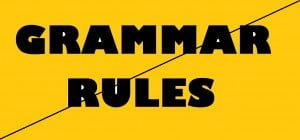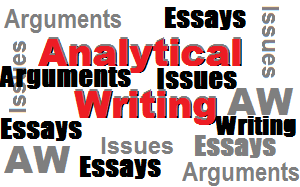
In this digital age, online coaching classes have become a popular choice for Graduate Record Examination (GRE) preparation. The convenience of studying from the comfort of your home and the flexibility of online learning make it an attractive option for many GRE aspirants. However, with so many online coaching options, selecting the best one can be daunting. In this blog, we’ll explore seven crucial tips to guide you in choosing the best GRE online coaching classes that align with your goals and learning preferences.
1. Research the Reputation:
Start your journey by looking into the reputation of online coaching classes. Conduct thorough research, read reviews, and explore testimonials from students who have undergone the program. Reputable platforms often have a track record of success, and their alumni can provide valuable insights into the effectiveness of the online coaching experience. Also, ask for feedback from your college seniors and consider their experiences in making an informed decision.
2. Online Instruction Expertise
The quality of instruction plays a pivotal role in the effectiveness of an online coaching program. Look for platforms with experienced instructors with a proven track record in online GRE preparation. Online instruction requires a unique skill set, and instructors who can effectively convey complex concepts through digital mediums enhance the overall learning experience.
3. Engaging Learning Environment:
Effective online coaching classes should foster an interactive and engaging learning environment. Features such as live sessions, discussion forums, and interactive quizzes can enhance your understanding of GRE concepts. Assess the platform’s commitment to creating an interactive space that simulates the engagement of a physical classroom.
4. Comprehensive Study Materials:
Evaluate the availability and quality of study materials offered by the online coaching platform. A comprehensive set of materials, including books, online question banks, practice tests, and video lectures, is essential for a well-rounded GRE preparation. Ensure the materials align with the latest GRE format and cover all relevant content areas.
5. Interactive Doubt-solving Sessions:
Choose platforms that prioritize regular doubt-solving sessions. This will allow you to get clarification on challenging topics that can significantly enhance your understanding of GRE concepts. So, look for coaching classes that schedule interactive doubt-solving sessions to cater to individual learning needs.
6. Adaptive Mock Tests:
Practice tests are a crucial component of GRE preparation, and online coaching classes should offer a robust set of good-quality mock tests. Also, ensure the mock tests align with the latest GRE format. Regularly taking simulated GRE tests and analyzing your performance can help identify areas for improvement and refine your test-taking strategies.
7. Free Demo Classes:
Opt for platforms that offer free trials or sample classes. This allows you to experience the teaching style, platform interface, and overall learning environment before committing to the full program. Free trials help you make an informed decision based on firsthand experience.
Selecting the best GRE online coaching classes requires careful consideration and research. By focusing on factors such as the platform’s reputation, instructor expertise in online instruction, interactive learning features, comprehensive study materials, doubt-solving sessions, mock tests, and free demo classes, you can make an informed decision that aligns with your learning style and preferences.
Remember that the right online coaching class can significantly impact your GRE preparation journey. It’s not just about the content but the overall learning experience. Invest time in exploring your options, and choose an online coaching class that not only equips you with the knowledge needed to ace the GRE but also enhances your skills and confidence in navigating the digital realm of education. Your success in the GRE is within reach with the right online coaching platform.
As India’s leading Study Abroad Consultant, Dilip Oak’s Academy offers a comprehensive suite of services, including GRE, TOEFL, and IELTS coaching, as well as GRE Self Prep. Furthermore, our admission counseling services can guide you through the entire process from Shortlisting Universities to Visa Counseling. With our expertise, we have successfully sent 32,000 students to various prestigious American universities like MIT, Stanford, Cornell, and Carnegie Mellon. To enroll in our comprehensive overseas education consultancy services, book a free consultation or call us at 91-20-67444222.










 First Things First
First Things First




